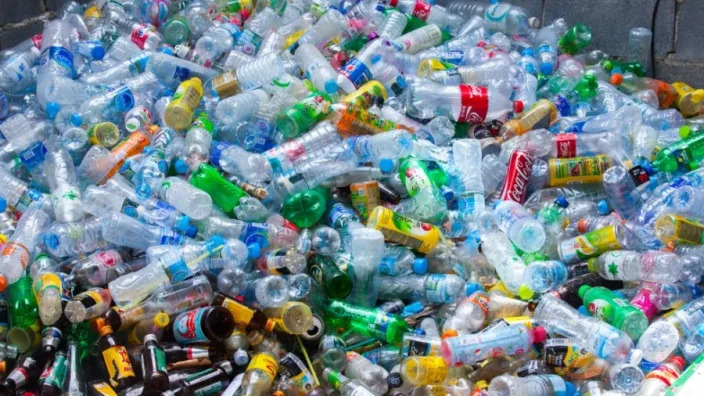
Saul Elbein
Mon, February 6, 2023
Plastic-chomping soil bacteria could find future work in recycling centers, a new study has found.
A study by a team of researchers led by Northwestern University shed light on the metabolic mechanisms that allow a common bacterium, Comamonas testosteroni, to digest plastic, according to findings published on Monday in the journal Nature Chemical Biology.
The researchers hope their findings decrease the need for petroleum-based plastics and lead to new ways of making plastic using renewable resources.
Comamonas testosteroni, which lives in various environments such as soil and sewage sludge, has been known for its ability to break down complex waste products such as synthetic laundry detergents. But researchers also tapped the bacterium’s natural appetite for plastic and lignin (a fibrous, woody plant compound).
Society could exploit soil bacteria as “a naturally occurring resource of biochemical reactions … to help us deal with the accumulating waste on our planet,” said Northwestern microbiologist Ludmilla Aristilde in a statement.
In particular, Aristilde’s lab found a way to get C. testosteroni to break up long molecules of plastic or lignin into smaller chains that can be recombined to make new plastics.
Compared to previous attempts to engineer bacteria to break down plastic waste, this bacterium’s natural ability to digest plastics holds far greater promise for large-scale recycling.
Such a discovery would offer potential salvation for the embattled field of recycling — which has struggled for decades to establish a “circular economy” that could essentially end the need for new fossil fuel production for plastics.
The U.S. recycled less than 5 percent of its plastics in 2002 — a slide from a high of nearly 10 percent in 2015, The Hill reported.
Despite these dismal numbers, the plastics industry has for decades relied on the perception of recycling as both a public obligation and the primary means of fighting plastic pollution, as NPR reported.
That’s remained the message even though most plastic polymers can only be converted into another object once or twice before they fall apart, according to NPR.
Scientists have long hoped that plastic-eating microbes could offer a potential way around this problem. Microbes are intensely creative chemists with the ability to develop and trade new methods of sources of fuel — which, in this case, extends to the hardy, persistent molecules that make up plastic polymers.
In 2018, scientists in Japan accidentally created the first natural plastic-degrading enzyme from a plastic-eating bug they had discovered in 2016. By 2020, the researchers had developed an enzyme that could break down plastic six times faster.
In the same year, German researchers created an enzyme capable of breaking down 1 ton of plastic bottles in 10 hours.
Since then, discoveries have continued apace.
Surveys of the soil and ocean bacteria by researchers at Chalmers University of Technology in Sweden uncovered 30,000 different enzymes that can break down ten types of plastic, according to a 2020 study.
Those scientists conjectured that the global overproduction of plastics had spurred the evolution of microbes that could eat them.
Scientists have also found a strain of bacteria, Pseudomonas, that can break down polyurethane, a type of plastic that is difficult to recycle or destroy.
And last year, Scandinavian scientists found a form of lake bacteria that grew more happily on the surfaces of plastic bags than on leaves and twigs.
However, these initiatives have yet to reach the point of mass commercial application.
While it isn’t easy to engineer bacteria for specific purposes, Aristilde said C. testosteroni is an excellent platform to turn against plastic because it can’t easily change its diet to something more digestible.
“C. testosteroni cannot use sugars, period,” she said, noting that these “natural genetic limitations” made the bacteria particularly effective for attacking plastics.
Aristilde believes that soil bacteria could be a valuable resource for dealing with the waste on our planet. Society can exploit the “untapped, unexplored” resource of bacterial chemical innovation to deal with the planet’s rising waste problem.
“The power of microbiology is amazing and could play an important role in establishing a circular economy,” she added.
The Hill.
No comments:
Post a Comment